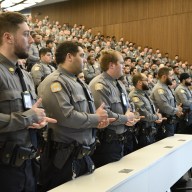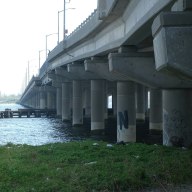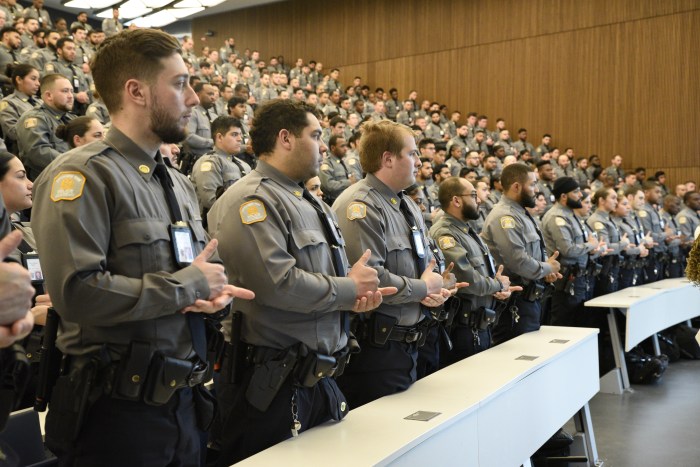Weekend J Trains Extended In 2015
Fares and tolls are expected to climb next year, but the MTA indicated it would expand service to local commuters on both the J subway line and the B13 bus route.
Next year, the MTA will extend weekend service on the J line in Lower Manhattan from Chambers Street, which presently serves as the line’s weekend western terminus, to Broad Street. This will allow J train riders from Bushwick, Williamsburg and other points in Brooklyn and Queens to avoid transferring at Chambers Street in order to travel to points further south.
An average of 14,000 weekend commuters on the J line will benefit from the extension, which will be enacted next June, according to the MTA.
Additionally, the MTA announced it would soon extend the southern terminus of the B13 bus line-which operates through Bushwick, Ridgewood, Glendale and Cypress Hills-to the Gateway Center II mall, which will open this fall in Spring Creek, Brooklyn.
The changes are part of nearly $15.5 million in service improvements outlined in the MTA’s 2015 budget announced in a press release last Monday, July 28.
The authority also plans on introducing two additional Select Bus Service routes across the city; the locations will be determined in the months ahead.
“We always want to better serve our customers by strengthening service whenever we have suitable resources to do so,” said MTA Chairman and CEO Thomas F. Prendergast. “These new investments in both subway and bus service will provide our customers with additional travel options and add seamless connectivity to vital transit hubs.”
Meanwhile, the MTA also announced last Monday a four-year financial plan which will hold proposed fare and toll increases in 2015 and 2017 to 4 percent each.
A projected $260 million annual increase in labor costs, resulting largely from deals struck with labor unions in recent months, will be paid through reallocated resources, it was noted.
According to the financial plan, the MTA will spend $20 million every year for the next four years in new subway, bus and commuter railroad service and $125 million for operational and maintenance needs.





























